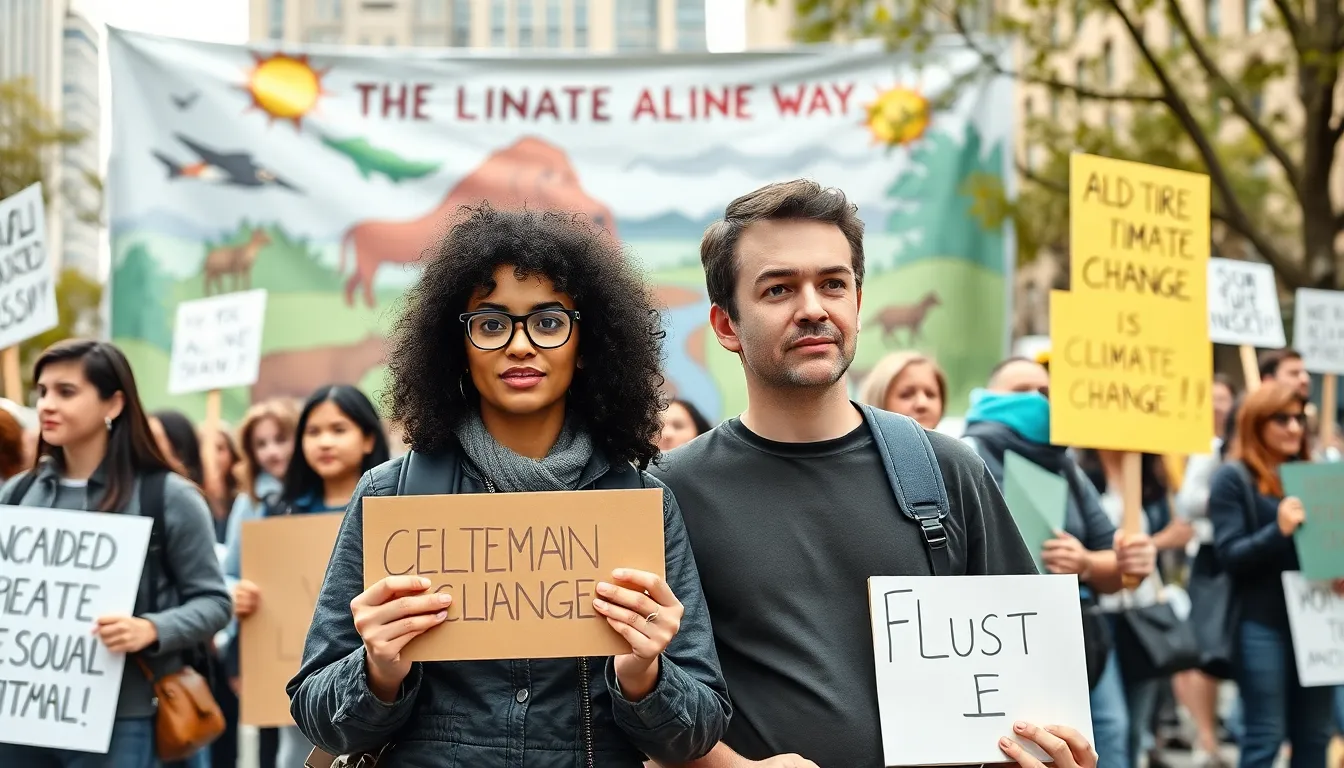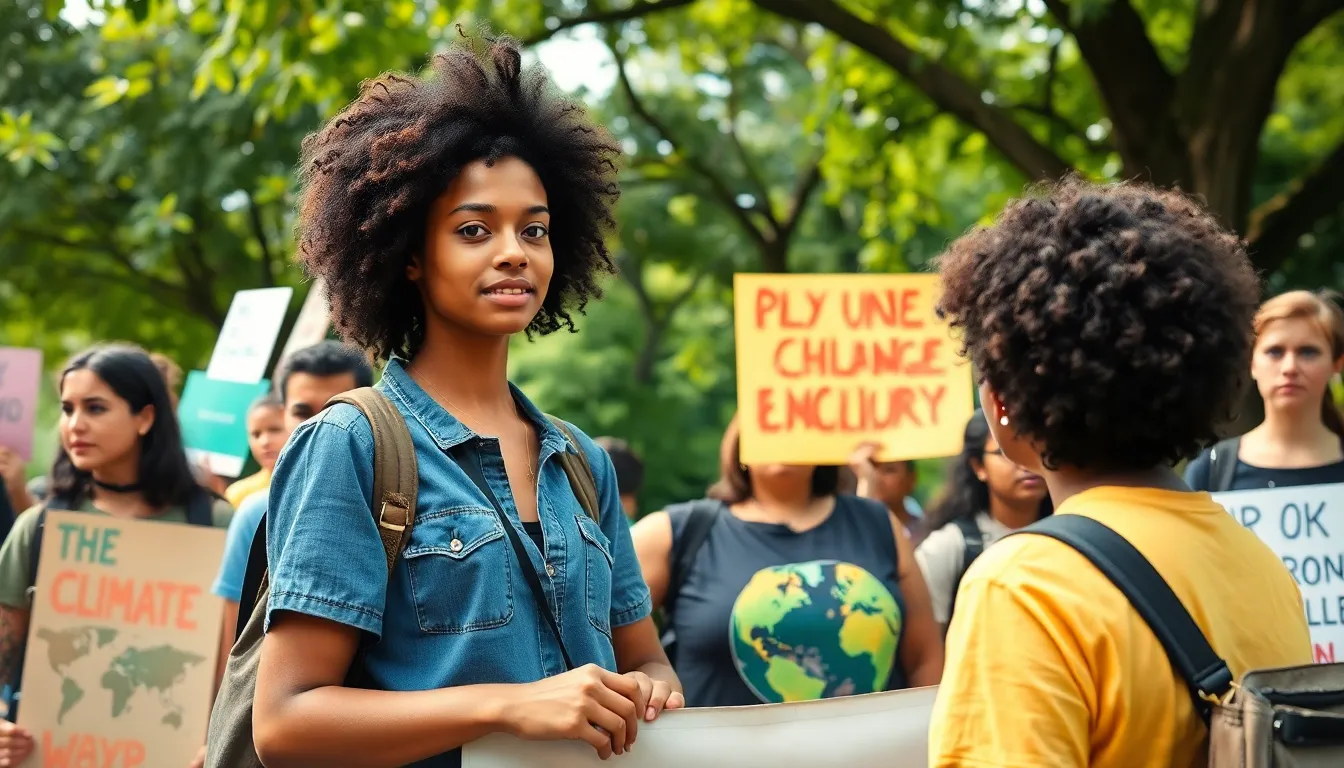In a world where climate change is the hot topic—pun intended—environmental law is stepping into the spotlight like a superhero in a spandex suit. It’s not just about saving the planet; it’s about navigating the legal maze that shapes our green future. From new regulations to landmark court cases, the latest news in environmental law is packed with twists and turns that could rival any Hollywood blockbuster.
Stay tuned for updates that not only inform but also entertain. Whether it’s a quirky ruling on plastic straws or a serious debate over carbon emissions, the world of environmental law is anything but dull. So grab your popcorn and get ready to dive into the fascinating—and sometimes hilarious—realm of legal battles that are fighting for a cleaner, greener tomorrow.
Table of Contents
ToggleRecent Developments in Environmental Law
Recent developments highlight significant shifts in environmental law, reflecting ongoing changes in regulations and judicial decisions. These updates provide insights into the evolving landscape.
Major Court Rulings
Several recent court rulings shape environmental law effectively. The U.S. Supreme Court ruled on a landmark case involving the Clean Water Act, impacting regulations on pollution discharge. This decision clarified jurisdiction over wetlands, establishing stricter oversight in certain areas. Additionally, state courts addressed environmental justice, emphasizing community rights in cases against polluting industries. Recent rulings emphasize the need for compliance, safeguarding public health and ecosystems.
Legislative Changes
Legislative changes continue to influence environmental policy dramatically. In 2023, Congress passed the Inflation Reduction Act, committing $369 billion to climate initiatives and clean energy programs. States are also enacting stricter emissions standards, leading to more rigorous requirements for industries. Local governments have adopted policies aimed at reducing plastic waste, reflecting a grassroots push for sustainability. New laws are emerging regularly, showcasing commitment to addressing climate issues and promoting a greener economy.
Key Issues in Environmental Law

Environmental law continues to evolve, addressing critical issues in climate change and species protection.
Climate Change Regulations
Regulations surrounding climate change are gaining momentum. The recent Inflation Reduction Act exemplifies this shift, allocating $369 billion for climate initiatives and clean energy projects. States are implementing stricter emission standards to curb greenhouse gas output. Local governments are adopting innovative policies to promote sustainability, including renewable energy incentives and energy efficiency programs. Experts emphasize the need for robust legal frameworks to support these strategies, ensuring compliance and fostering collaboration between various stakeholders.
Endangered Species Protection
Protecting endangered species remains a pivotal issue within environmental law. The Endangered Species Act, pivotal in safeguarding at-risk wildlife, faces challenges due to development pressures and habitat loss. Recent court decisions emphasize the importance of habitat preservation, reinforcing protections for vulnerable species. Additionally, advocacy groups are increasingly involved in litigation efforts to challenge decisions that may jeopardize species survival. Strong partnerships between government agencies and non-profits play a crucial role in recovery efforts, ensuring that conservation programs effectively address the threats these species face.
Impacts of Environmental Law News
Recent shifts in environmental law significantly affect various sectors and communities. Changes in regulations and court rulings shape responses and strategies within industries and local populations alike.
Effects on Businesses
Businesses must adapt to evolving environmental regulations. Compliance with stricter emission standards often requires substantial investment in sustainable technologies. Companies face heightened scrutiny from stakeholders concerned about environmental responsibilities. Significant court rulings can lead to increased accountability for pollutants, prompting businesses to reassess their practices. Many industries, such as manufacturing and energy, are navigating challenges related to climate initiatives. Incorporating sustainable methods can enhance brand reputation and attract environmentally conscious consumers. Moreover, companies engaging in proactive environmental stewardship may benefit from potential incentives and grants linked to new legislations.
Community Responses
Communities are becoming more engaged with environmental law developments. Grassroots movements are advocating for stricter regulations on plastic waste and pollution. Local governments are responding by implementing policies aimed at reducing environmental impact. Residents often unite to push back against harmful projects that threaten local ecosystems. For instance, neighborhood groups have rallied to preserve wetlands affected by industrial expansion. Collaboration among community members, non-profits, and government agencies enhances conservation efforts. Increased awareness of environmental issues has sparked educational programs that empower individuals to take action. As a result, community-driven initiatives play a crucial role in shaping local environmental policies.
Future Trends in Environmental Law
Future trends in environmental law reveal an evolving landscape marked by proactive measures and innovative legal frameworks.
Anticipated Legislation
Legislators are expected to introduce new measures addressing climate change and environmental protection in response to public demand. Bills promoting renewable energy sources, such as wind and solar, seek to incentivize sustainable practices among businesses and households. Additionally, stricter regulations on carbon emissions aim to align with international climate commitments. Recent proposals call for expanded funding for environmental restoration projects to combat biodiversity loss. Local governments increasingly recognize the need for legislation aimed at reducing single-use plastics and enhancing recycling programs.
Emerging Legal Discourses
Emerging legal discourses in environmental law focus on environmental justice and corporate accountability. Activists advocate for legislation that ensures marginalized communities receive equal protection from environmental harms. Legal scholars explore the intersection of human rights and environmental laws, emphasizing the need for frameworks that address climate refugees. The rise of litigation against major polluters underscores growing public awareness of corporate responsibilities in environmental degradation. Ecological integrity informs discussions about land-use planning and habitat protection, reflecting a shift toward sustainable urban development practices.
The evolving landscape of environmental law reflects a growing commitment to sustainability and justice. As regulations tighten and communities mobilize for change, the intersection of legal frameworks and environmental protection becomes increasingly vital.
With significant court rulings and legislative actions paving the way for a greener future, stakeholders must stay informed and adapt to emerging trends. The momentum behind climate initiatives and the push for corporate accountability signal a transformative era in environmental governance.
As awareness continues to rise, the dialogue surrounding environmental law will only gain importance, driving both policy and community engagement toward a cleaner, more equitable world.


